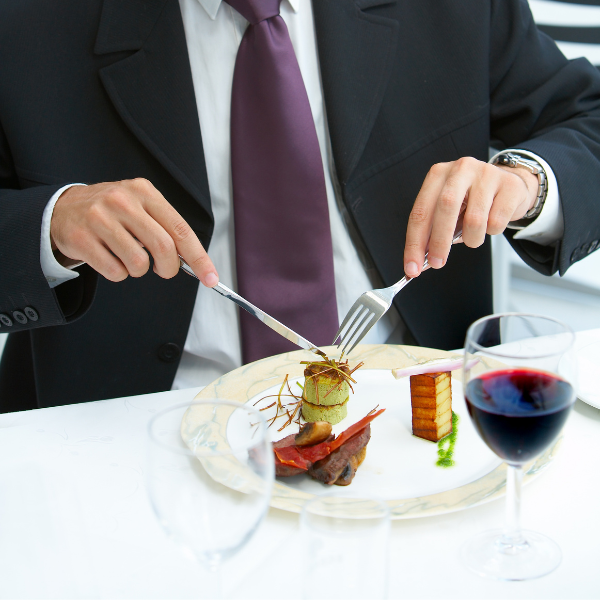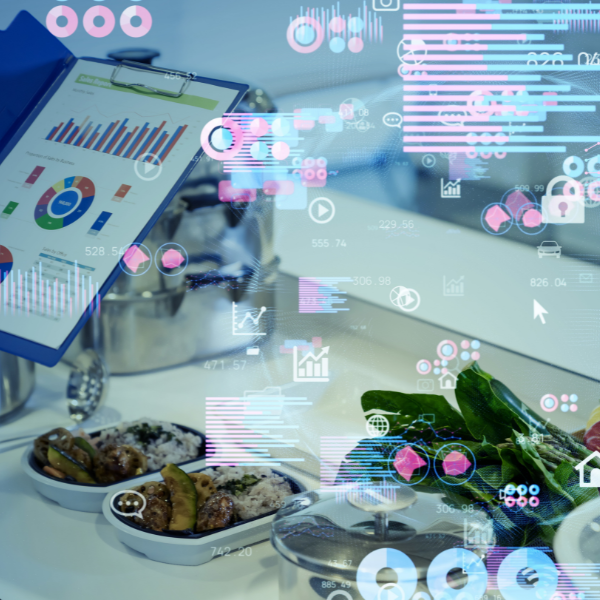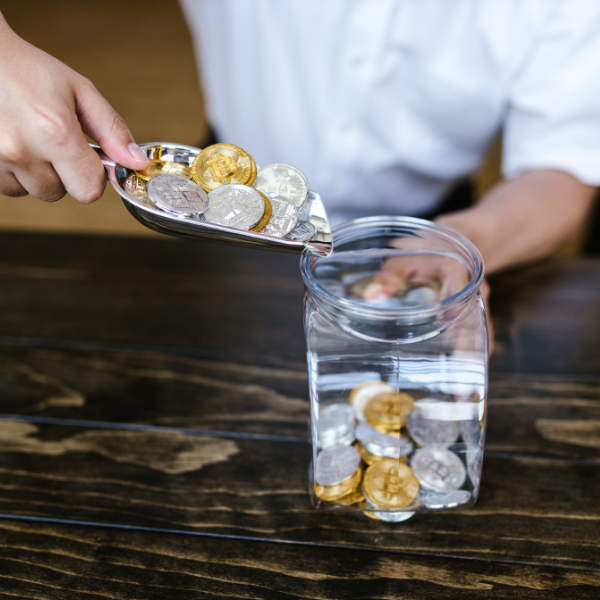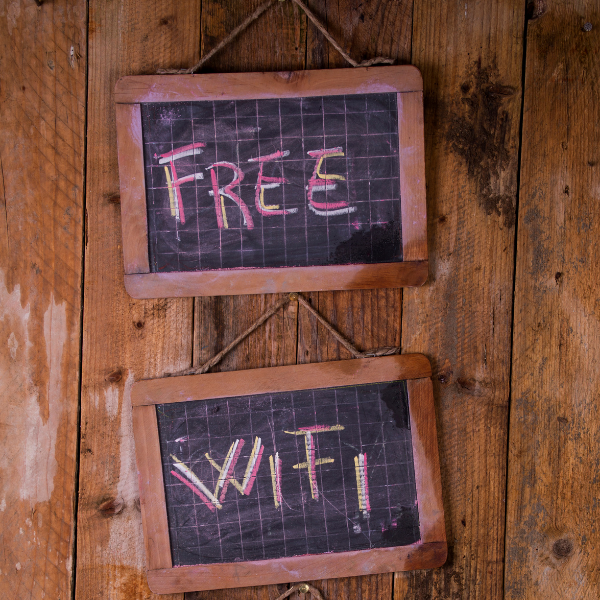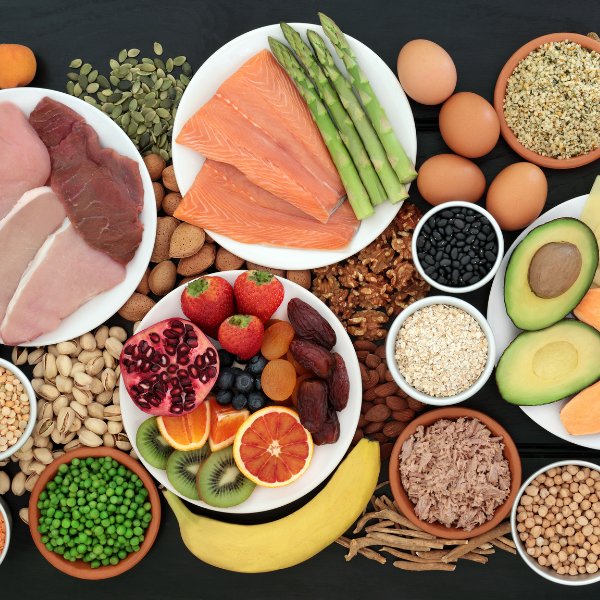Stats Of The Week
The State Of The Industry
According to a study conducted by Bank of America, national restaurant chains have largely recovered from the immense impact of declined spending during COVID-19. The study compared consumer spending from March 1 to July 4 between large restaurant chains and small, independent restaurants. At the beginning of March, before stay-at-home orders were implemented, consumer spending between large restaurant chains and local restaurants was very close with just about a 5-6% gap in year-over-year spending. By mid-April, when the entire restaurant industry was experiencing negative year-over-year spending, the spending gap between large and small restaurants had widened to almost 35%. By July 4, the projection of large restaurant chain spending was positive for the first time since the beginning of the pandemic.
Ghost Kitchens Are The Future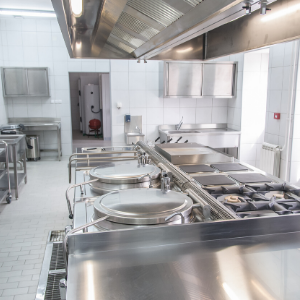
According to Euromonitor’s Global Food and Beverage Lead Michael Shaefer, the firm predicts that ghost kitchens could create a $1 trillion global opportunity by 2030. Ghost kitchens are establishments that purely focus on producing food only for delivery with no dine-in or customer-facing areas. The firm predicts cheaper, faster, and more reliable delivery could help these operations capture 50% of drive-thru service, 50% of takeaway foodservice, 35% of ready meals, 30% of packaged cooking ingredients, 25% of dine-in foodservice, and 15% of packaged snacks. Shaefer said to Restaurant Dive, in the wake of the pandemic, as shuttered businesses leave empty real estate behind it will prime the industry for an acceleration in ghost kitchen development.
"We expect in the current pandemic we'll see more of this repurposing, real estate operators doing anything they can to drive revenue from their existing properties. Likewise, we're going to see a lot of new operators looking to fill the void with cheaper concepts, more delivery-friendly concepts that require less capital upfront," Schaefer said to Restaurant Dive.
What’s Trending
California Closes All Indoor Operations
On July 13, California Governor Gavin Nesom announced that all restaurants must close their dining rooms as coronavirus cases surge across the state. Restaurants are still able to offer outdoor dining, but bars and breweries must completely shutdown. Newsom had previously enacted these closures to a few counties last week but has now expanded them to the entire state. 30 of the state’s most populous counties, including Alameda County, Los Angeles County, Orange County, and San Diego County, are also being ordered to close shopping malls, gyms, churches, barbershops, and salons. More than 80% of California’s population lives in these 30 counties. The governor’s order also includes a ban on indoor operations in movie theaters, family entertainment, zoos, and museums.
Florida Bar Owners Sue Governor Over Shutdown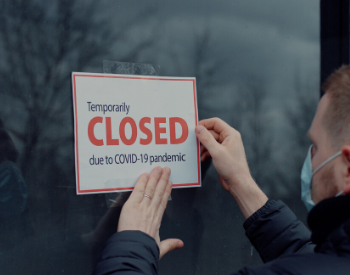
A group of Florida bar owners is suing Florida Governor Ron DeSantis in hopes of overturning the state’s order that shuts down bars while keeping restaurant bars open. Many attribute the spike in COVID-19 cases to young people who may have gathered at bars and on June 26 an emergency order was put in place. The Florida order prohibited establishments that received 50% of their gross revenue from the sale of alcohol from serving on-premises. A representative of the Florida bar owners said the order did not address restaurants containing bars ceasing to serve alcohol to customers and have stated that their businesses have complied with all safety mandates and guidelines set by the CDC.
“Instead of penalizing violators of the guidelines, Gov. DeSantis has thrown the baby out with the bathwater and prevented law-abiding citizens from making a living. My clients are in favor of reducing the spread of COVID-19, but can't understand why serving a certain amount of food is the deciding factor on who can stay open and who cannot,” John Dill, plaintiff attorney of Winter Park, FL, said in a statement to Nation’s Restaurant News.
DoorDash Violates Commission Fee Caps In San Francisco
In April, San Francisco enacted a 15% commission cap on all third-party food delivery services to help diminish the costs that the already struggling restaurant industry was facing. In recent weeks, some San Francisco restaurants have reported 30% commission fee charges on DoorDash deliveries despite the citywide cap. According to the San Francisco Chronicle, San Francisco Chef Christian Ciscle called the company out for the violation on social media and told The Chronicle that such fees made it impossible to survive even before the COVID-19 crisis. DoorDash told the publication that the issue has been corrected, fewer than 10 restaurants were impacted, and those restaurants will be reimbursed. Ciscle told The Chronicle that he still hasn’t been notified about a reimbursement plan despite multiple calls to the company.
Commission-Free Food Delivery Comes To NYC
With third-party delivery services receiving backlash for high commission rates in the past few months, a new commission-free delivery service has launched onto the scene in New York City. CaterCow has launched Fare, a commission-free food delivery service, which offers group orders within communities, neighborhoods, and buildings so all meals are delivered in one batch, instead of in individual, smaller deliveries. Customers look through a curated menu of gourmet meals that are created to travel well, choose their meals, order in advance, and receive their orders within a set time frame. Fare does not require any minimums per individual order and only charges delivery fees to the consumer starting at $3 depending on the amount ordered.
Uber Introduces Grocery Delivery In The U.S.
Uber recently announced they will be offering grocery delivery in the United States starting this month
through Uber Eats. The rollout will start in Dallas, TX and Miami, FL with their partner Cornershop
before expanding to other cities. Uber is partnering with chain grocers along with local grocers so
shoppers can receive deliveries from the place of their choosing. Uber is entering a crowded field but
has the advantage of having a very large base of customers and drivers. Customers can choose the grocery
delivery tab from the main screen under the Uber and Uber Eats app and select their grocer and shop by
specific categories. Shopping and delivery will initially be done by Cornershop employees, but Uber
drivers will be able to sign up to be a part of grocery delivery soon.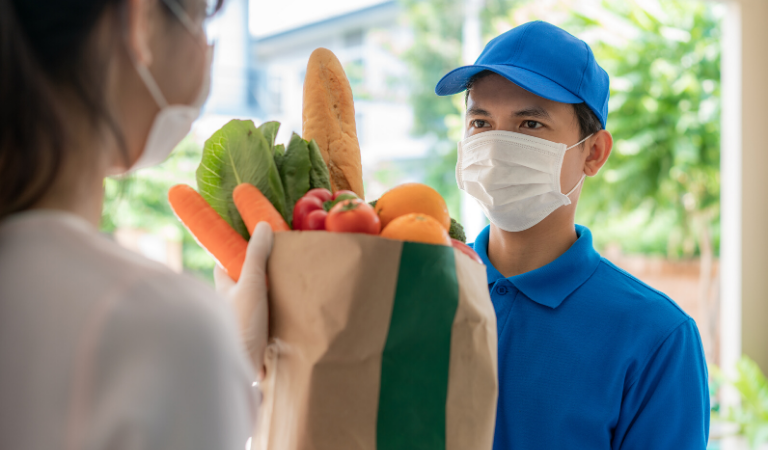
Bright Spots In A COVID-19 World
Local Chef Feeds Community For Free
Loretta Vigil, founder of Chefelle Personal Chef and Catering Services in Duarte, CA, offers free meals to anyone with no questions or restrictions. Vigil has created a menu of options from mac and cheese and penne with marinara to beef chili with mushrooms and chicken noodle soup. She even offers safe pickup at her Lemon Drop Cookie Shop’s kitchen or makes deliveries to those who need it with gloves and a mask. When Vigil first started offering free meals, word spread fast around the community and neighbors began picking up meals for relatives who were elderly and homebound. Each week Vigil mixes up her food options and has paid for her kind act out of pocket until local groups in the community fundraised to help out with costs.
“The last three or four years of business have gone extremely well so knowing I’m so blessed, this was my small part, my way of giving back and being a blessing to others,” Vigil said to San Gabriel Valley Tribune.
Chef Pursues His Dream During A Pandemic
After Chef Emerson Holliday lost his job following the effects of COVID-19, he like so many, applied for unemployment to stay afloat. Holliday told The Journal Times that for years he had been putting off starting his own restaurant in fear of it being too expensive and too risky. Holliday said after he lost his job he had no more excuses and had plenty of time to invest in a new venture. He then opened Dragon Pit BBQ. Unlike other new restaurants, Dragon Pit doesn’t have a traditional storefront or dining area. Holliday bought a smoker online and rents out a commercial kitchen for food prep. His business specializes in barbecue and receives orders online from customers who then pick up their meals from a parking lot. Dragon Pit is only open a couple of days a week and schedules pop-up dates throughout the month. The current setup works for Holliday to avoid large expenses, but he hopes to one day own his own space.
Quote Of Hope
“I believe when we come through it, people are going to appreciate the restaurant experience a lot more. There’s going to be renewed interest.” - Andrew Carmellini, James Beard Awarded chef and restauranteur




